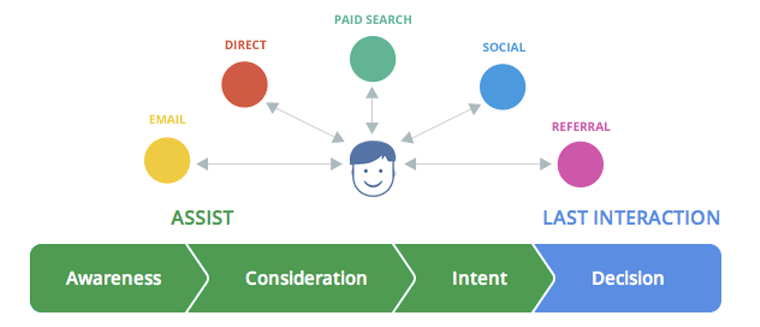Google Ads: Tips For Optimizing Your Campaign

Google Ads: Tips For Optimizing Your Campaign
Google’s first page is no longer dominated by organic SEO listings.
You may experience low leads if your real estate business doesn’t appear on Google’s SERPs even though Google tests the layout and personalizes results based on the user.
This is true for all search engines, even if we emphasize Google search.
Competing in the real estate sector requires the constant evolution of SEO strategies.
You may want to add PPC to your real estate business if you notice an impact.
To help you gain visibility in the real estate vertical, here are a few PPC strategies, tips, and ad formats.
In addition, this will take into account the nuances and challenges specific to the real estate industry.

Challenges
The Real Estate Industry Is Extremely Local
End-users are typically required to live in the location they are searching for or plan to live there. However, investors are still searching for a specific location.
The location of the property is the first thing a Google Ads campaign for real estate should focus on.
Google Ads’ location settings changed over the past year, and you can no longer target people just within your area. The phrase has been changed to “People who are regularly in, or who live in.”
I understand. Keeping in mind that people who wish to relocate, as well as those who regularly visit a place (perhaps they commute in for work), is important, and should not be excluded.
We’ve seen an increased number of people and companies moving to other parts of the country during the pandemic.
Using different regions to target these users could be an option, but on a limited budget, this can be difficult.
Renting is not an option for homeowners
Consumers are unlikely to want to rent if they own their homes. This challenge is specific to investors who run rental properties.
Is there a way to prevent your advertising from being seen by current homeowners?
Long-term leases lock tenants in
However, renters are often tied to six-month or twelve-month leases, which makes them an ideal candidate for builders and sellers. On any given day, their eligibility is hit-or-miss.
For them to think of you when they’re ready, you must build a long-term relationship with them.
A Home Or Apartment Is Not For Everyone
Aside from all of that, the products must be affordable (and qualify for).
Many people are disqualified from applying for a new apartment or a home they dream of owning due to credit checks.
As long as the campaigns are set up correctly, Google Ads can specifically target qualified real estate shoppers.
To optimize your real estate business’s PPC campaign, let’s begin with a plan.
The Terms Of Your Brand Are Very Important When Bidding
The debate over whether to bid on brand terms is one of the industry’s favorites (or perhaps it’s just a client’s favorite).
Investing in branded terms is a critical part of the discovery process for real estate.
Numerous factors contribute to real estate searchers’ understanding of the communities and locations:
- Physical signs.
- Listing aggregate websites.
- A co-worker or friend.
- Craigslist.
- Apartment guide.
It is important to note, however, that these sources do not always provide sufficient information.
![How to optimize for Google AdWords in 2020: 50 tips to increase clicks [Infographic]](https://cdn2.hubspot.net/hubfs/145335/optimization-tips-google-adwords.jpg)
For more information, a branded search is conducted on Google.
You are also likely to get the best leads if shoppers search for your brand name specifically.
Don’t let these lower funnel searchers pass you by!
Choosing not to bid on your brand keywords may result in one of the following (if not both):
- You will likely see competitors above your organic brand listing if they are buying your brand name.
- There are several real estate aggregators (which offer apartments and new homes) which will gladly take the top position when it comes to brand terms, including brand plus city/state keywords. Upon clicking through, your local competitors are now just one click away.
Competitors stealing warm leads is not the right way to do real estate SEM.
To take advantage of that coveted top spot on the page, you should invest in brand terms.
Searchers with low intent should be removed
Due to Google’s increasingly liberal keyword matching (even for “Exact Match”), it has become even more challenging to avoid a wide variety of keyword matches.
You can download my default negative list (which I developed over the years).
Including the state negatives in this list for new campaigns is part of the process.
A list of the negatives includes Craigslist, Home Depot, Tiny Homes (as in “tiny homes”), Zillow, Resumes, and Section 8.
Downloading the list is only recommended if you are certain you won’t delete anything you need.
Prevent other city keywords from matching
It is rare for a city name to be unique.
The names of community brands are not uncommon either, unfortunately.
These different city searches generate clicks that need to be removed.
Is this a simple strategy?
Negative keyword lists should be set up for State and State abbreviations in particular.
Duplicate (and untargeted) searches will be weeded out this way.

Demographics Are Important
It’s not just for Search Ads that detailed demographic targeting is powerful!
The Google Real Estate platform has added new categories around the following areas over the past few years:
- Demographic details: Homeowners or renters.
- Residential property is in the market.
- Life events
This audience segment can either be targeted, observed, or excluded.
Combinations are also powerful.
It might be a good idea to create a combined audience containing “Detailed demographics: Renters” along with “Life events: Purchasing a home” or “In-Market: Residential properties” if you want to target renters who are seeking to buy. In that example, you would have:
These targeting options also need to be understood in their nuances.
There are some targeting options above that are available only for Display or YouTube campaigns, whereas others can also be used for Search campaigns.
The following can be used for real estate searches, displays, and YouTube videos:
- A detailed demographic breakdown shows whether a person is a homeowner or a renter.
- Relocation, moving, and residential properties are in-market.
You can target only Display and YouTube:
- Homeowners vs. renters: detailed demographics.
- Relocation, moving, and residential properties are in-demand.
- Home purchase and a move are upcoming life events.
In particular, if you are on a budget, these targeting options are invaluable.
Ensure you’re reaching the right people with your Search campaigns by layering on the above targeting criteria.
![16 Expert Google Ads Optimization Tips For Better ROI [With Checklist]](https://wp.klientboost.com/wp-content/uploads/2021/08/Google_Hub-Google_Ads_Optimization-1200x630v2.png)
ALL The Ad Extensions
Ad extensions are now factored into Google’s Ad Rank formula.
A minimum of three ad extensions per ad is a good practice, aside from their value for real estate.
- Location Extensions
- Sitelink Extensions
- Price Extensions
- Call Extensions
edited and proofread by nikita sharma




